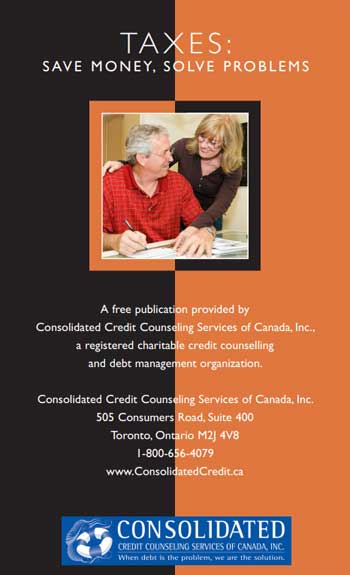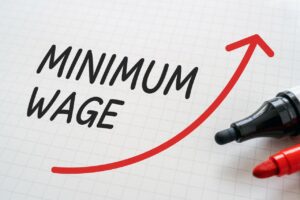It’s official – tax season is upon Canadians! The benefits of living in Canada are all the available resources and shared services. These are only possible because of the taxation system which redistributes wealth. If you’re wondering if you’re required to file your taxes in 2021, continue reading below.
What is income tax?
Income tax is money paid to the government on income earned. In Canada, income tax is payable to the Canada Revenue Agency (CRA). A tax year is always January 1 to December 31 for individual tax. How much income tax is owed varies from person to person. Some individuals have taxes withheld at the source reducing their bill, while others don’t. Income, employment status, and available deductions are all factors that affect income tax.
What is the minimum income to file taxes in Canada?
Anyone who earned income in a calendar year must file taxes. Technically, there is no minimum income. Even if you didn’t earn anything, it’s best practice to complete a tax return annually.
With that said, your tax payable will vary based on how much you earned. Canada has a tiered taxation system. This means the more you earn, the more taxes you pay. Below are the federal tax brackets for 2022:
➢ 15% on the first $50,197 of taxable income
➢ 20.5% on the next $50,195 of taxable income (on the portion of taxable income between $50,197 and $100,392)
➢ 26% on the next $55,233 of taxable income (on the portion of taxable income between $100,392 and $155,625)
➢ 29% on the next $66,083 of taxable income (on the portion of taxable income between $155,625 and $221,708)
➢ 33% of taxable income over $221,708
The provinces and territories have their own personalized tax brackets as well. In addition to federal taxes, you owe provincial or territorial taxes.
Income Tax Bracket Comparison Calculator
Use the calculator below to determine your tax burden (both Federal and Provincial) and see how that compares to a similar income in other provinces.
Enter your total taxable income, your filing year, and your Province
Who has to file an income tax return?
You are required to file an income tax return if you meet one or more of the following criteria:
➢ You are earning income, such as employment income, investment or other income, and owe tax to the CRA.
➢ You are a resident of Canada. This includes international students or individuals who travelled outside of Canada.
➢ You are self-employed and owe Canada Pension Plan (CPP) and Employment Insurance (EI) premiums.
➢ Your spouse or common-law partner splits income with you.
➢ You’ve utilized the Home Buyer’s Plan (HBP) or Lifelong Learning Plan (LLP) and owe repayments.
➢ You withdrew money from your Registered Retirement Savings Plan (RRSP) outside of the HBP or LLP.
➢ You sold or disposed of capital property, such as a home, vehicle, or other assets. You must file even if you didn’t incur a capital gain.
➢ You must repay Old Age Security or Employment Insurance Benefits.
➢ You received a financial support benefit from the government, such as social security, Canada Workers Benefit (CWB) or similar.
➢ The CRA sent you a Request to File or Demand to File.
What about deceased persons?
When an individual passes away, they must file final tax forms. Usually, a family member or close friend completes the final tax return while processing a will or estate. The rules vary slightly from regular tax returns, including due dates and filing requirements.
At what age do seniors stop paying taxes?
There is no age limit on taxation in Canada, unfortunately. Filing income taxes is a requirement regardless of age. Since many seniors are receiving money from a pension, government support or other retirement sources, they are not exempt from paying taxes.
What if I am not required to file?
Even if you aren’t required to file, it’s best practice to file anyway. The first reason is to have a record that you don’t owe any taxes. If you don’t file your tax return, the CRA may request that you do it later to ensure you don’t owe anything. It’s best to maintain an up-to-date filing status.
Another reason to file is for a potential tax refund and access to other benefits. In some cases, when you don’t owe taxes, you may be eligible for money back. You may also find out that you’re eligible for federal and/or provincial benefit programs. This could be the GST/HST credit, the Ontario Trillium Benefit and many more. If you ever want to claim other benefits, such as the Canada Workers Benefit (CWB), Guaranteed Income Supplement (GIS) or the Canada Child Benefit (CCB), the CRA requires you to be up to date on your tax returns. Finally, your Registered Retirement Savings Plan (RRSP) contribution limit calculation uses your income as a base. If you don’t file taxes, you won’t add to your contribution room.
TAXES: Save Money, Solve Problems
Taxes take a big bite out of most Canadian’s budgets. In fact, they are the largest single expense for many of us. According to The Fraser Institute, the average Canadian family (including single Canadians) earned $85,883 in income and paid $37,058 in total taxes in 2017. That’s 43.1 percent of income going to taxes.
To help Canadians understand how much we pay toward taxes, we “celebrate” Tax Freedom Day. This is the date by which Canadians’ average earnings equal their annual federal, provincial and local tax bills. In 2020, it was celebrated on May 19th.
When do you file your return?
Personal income tax return filings and payments are due on April 30, 2022. If you are self-employed, you have until June 15, 2022, to file and pay.
Any contributions made to an RRSP reduce your taxable income by the same amount. If you’d like to take advantage of this, you have until March 1, 2022, to make a contribution and still report the deduction on your 2021 taxes.
The CRA opened NETFILE on Feb 21, 2022.
Filing taxes late
If you file taxes late, you may incur penalties and interest. The CRA will begin charging compound daily interest on May 3, 2022, on your taxes owing. The prescribed interest rates are subject to change every 3 months.
If the CRA requires you to pay tax installments, you must pay the balance owing on the payment date. If you miss a payment, you will incur interest.
In addition to interest, there is also a late filing penalty. For 2021, the late filing penalty is 5% of your balance owing. Plus an additional 1% for every full month you file after the due date, up to a maximum of 12 months. Even if you can’t pay your taxes by the deadline, you should still file to avoid this fine. The late payment penalty on tax installments only applies if your interest charges for 2022 are more than $1,000.
Tax Season and You
Let’s face it – no one likes tax season. It’s stressful to gather all the documentation and figure out how to report income. However, each tax year that passes, the process gets a little easier. If numbers really aren’t your thing, consider hiring a tax professional. The same is true if you have an unusual tax circumstance. If you need assistance with managing your tax payable, Consolidated Credit is here to help as well.
Are you struggling with debt and tax payments? Contact our financial experts.






